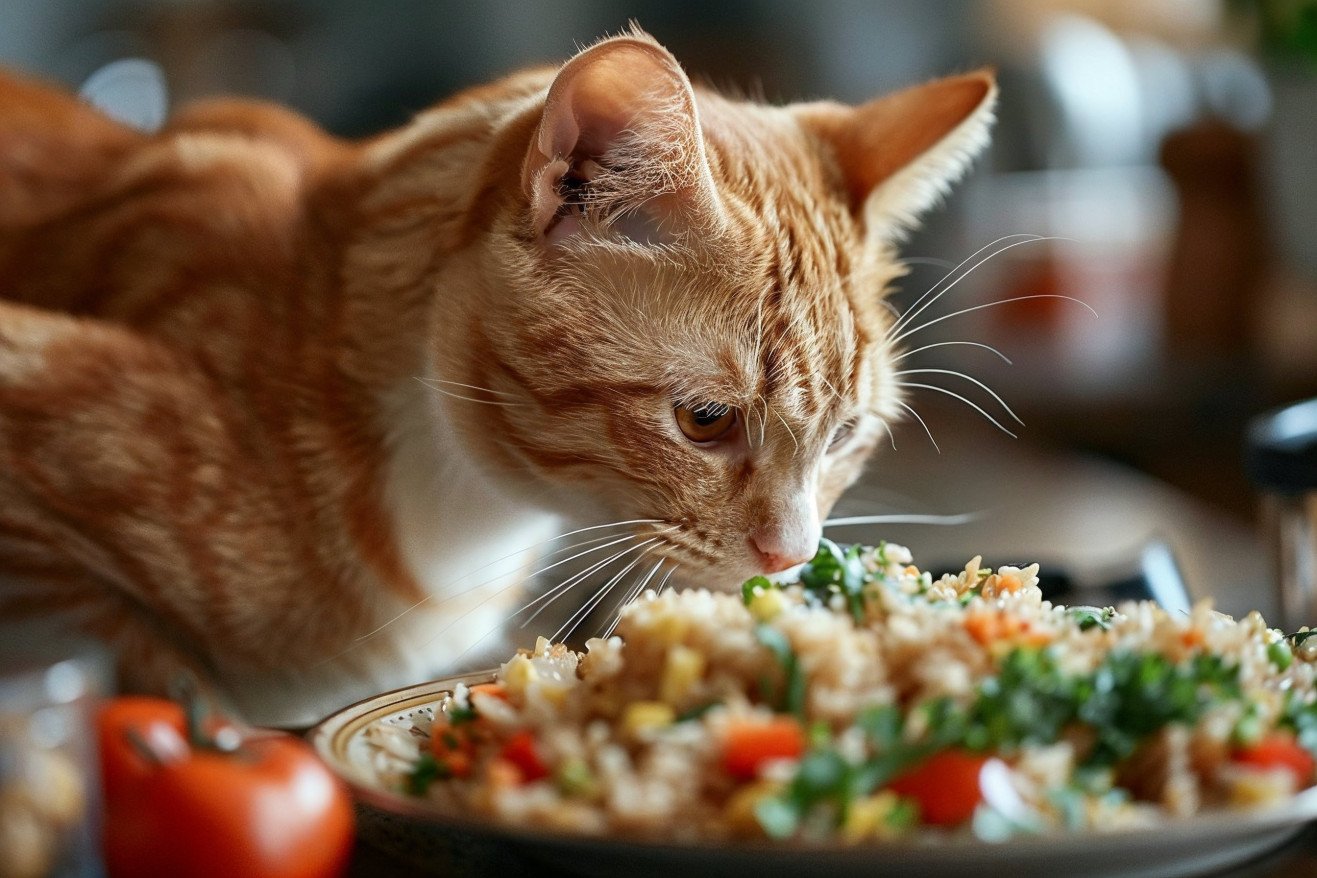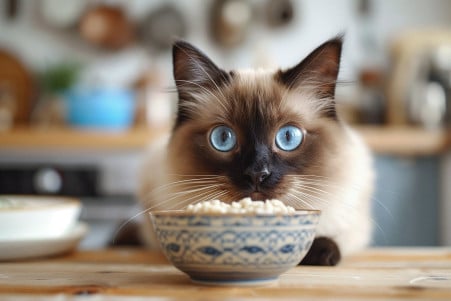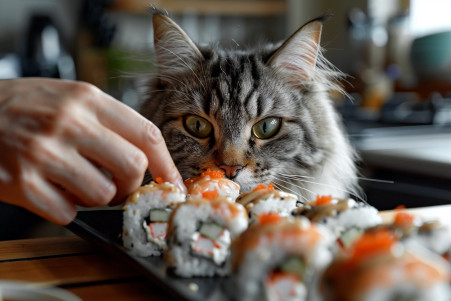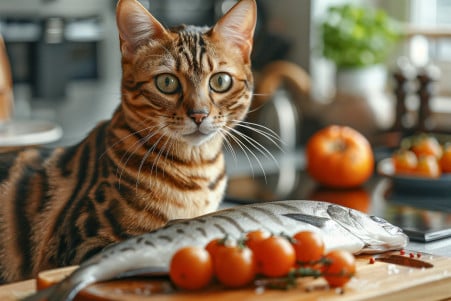Is It Safe to Give Your Cat Rice? The Benefits and Risks
22 March 2024 • Updated 22 March 2024

If you’ve ever noticed your cat staring at your rice and wondered if it’s OK to give them a little, you’re not alone. While cats are obligate carnivores, a small amount of cooked plain white rice can be a good treat for many cats. Not only is it non-toxic, but it can also help cats with diarrhea or other stomach issues due to its binding properties and easily-digestible calories.
To give a full overview of this topic, we’ll cover information from veterinary nutritionists and other experts in feline health to explain the right serving sizes and potential benefits of giving cats rice as a treat. We’ll also discuss research on the nutritional content and potential risks or downsides so you can decide if you want to add rice to your cat’s diet.
Is it safe to give your cat rice?
Nutritional Value and Risks of Feeding Rice to Cats
Rice has very little nutritional value for cats, who are obligate carnivores that need a diet high in animal proteins and fats. Although brown rice does have some fiber, vitamins and minerals, white rice is almost completely nutrient-free except for the empty calories provided by carbohydrates.
Consuming too many carbohydrates from rice can lead to weight gain, obesity and an increased risk of diabetes in cats, since their bodies aren't built to process large amounts of plant-based foods. In addition, eating too much rice can lead to digestive problems like diarrhea or constipation because cats have a limited ability to digest grains and carbohydrates.
Kittens, in particular, should not eat rice at all since they need a well-balanced, nutrient-rich diet to grow and develop properly. Their nutritional needs can't be met by rice or other plant-based foods that don't contain complete proteins and fats. While small amounts of rice may be safe for adult cats, rice doesn't provide the nutrition kittens need to grow and develop properly.
How to Serve Rice to Your Cat
Rice should only be served to cats in small amounts as an occasional treat, not as a regular part of their diet. Hill's Pet recommends serving plain white or brown rice that has been cooked without any seasonings, oils, or other additives. Uncooked rice should be avoided because it's hard to digest and may contain bacteria or toxins that could be harmful to your cat.
Fried rice, rice dishes that contain onions or garlic, and other rice dishes that contain seasonings should also be avoided because they can be toxic or cause digestive problems. The Daily Paws says that all types of rice are safe for cats as long as they are cooked without any additives. Cats can eat white rice, which is the easiest for them to digest, and brown rice, although the outer bran layer can make it harder to digest.
Ask your vet for guidance on portion sizes based on your cat's size, age, and health. As Genius Litter points out, rice should only be a small part of a cat's diet, no more than 25%, while meat should account for more than 50% of their nutritional intake.
Rice as a Short-Term Dietary Aid for Digestive Problems
While not a long-term solution, plain cooked rice can be a short-term dietary aid for cats with diarrhea or other digestive problems. The Wildest explains that rice's binding properties and easy digestibility can help to solidify stools and provide calories during gastrointestinal upset. In fact, some vets may recommend a bland diet of boiled chicken and rice for a few days to help a cat's digestive system reset, according to Kritter Kommunity.
That said, rice should not account for more than 25% of a cat's diet, and a complete, balanced diet should be slowly reintroduced once the problem has been resolved. Purina warns that it's important to talk to a vet before making any major dietary changes, as there may be an underlying health issue that requires special treatment or food.
Rice Substitutes and Balanced Diets for Cats
Although rice can be given to cats in moderation, they need a balanced diet that is made up mostly of high-quality animal proteins and fats. Purina notes that cats are obligate carnivores, which means they don't need carbohydrates like the ones found in rice.
Most commercial cat foods are created by veterinary nutritionists and are designed to offer complete and balanced nutrition that meets all of a cat's dietary requirements. For cats that have allergies or sensitivities, WKBW explains that veterinarians may recommend hypoallergenic cat food or limited-ingredient diets.
Other sources of carbohydrates, such as cooked sweet potatoes or pumpkin, can be given to cats as a treat, but Hepper warns that they shouldn't be used to replace the animal proteins and fats that make up the bulk of a cat's diet. It's best to work with a veterinarian or animal nutritionist to come up with a meal plan that includes a variety of foods that meet your cat's specific nutritional needs.
Final Thoughts: Weighing the Pros and Cons of Feeding Cats Rice
Although small amounts of cooked, plain rice can be a safe occasional treat for most cats, it should not be a regular part of their diet. Cats are obligate carnivores and need a diet that is primarily made up of animal-based proteins and fats to get the nutrients they need. Overconsumption of rice or making it a large part of a cat's diet can lead to obesity, diabetes, and other health problems because of the high carbohydrate content.
If you are going to feed your cat rice, it should be done in moderation, without any added seasonings or ingredients, and with the help of a vet.
In the end, a balanced, meat-based diet that is created by veterinary nutritionists is the best way to make sure that your cat is healthy in the long run.


